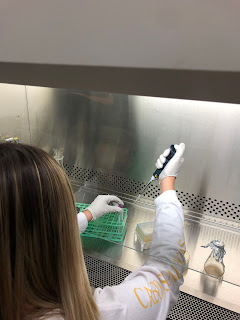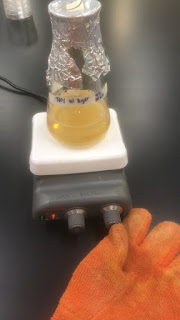
After about 3-4 weeks, we have ran 3 trials for each salt concentration. We have one set of data points so far and by Tuesday we will have all 3 trials figured out. The first round of data points all turned out good with no contamination. The process has been good overall and we have not ran into any major issues. In the beginning we had a few hiccups with contamination on our TGY plates but nothing since. We are excited to get the rest of our data points and run the statistics to put a poster together.



